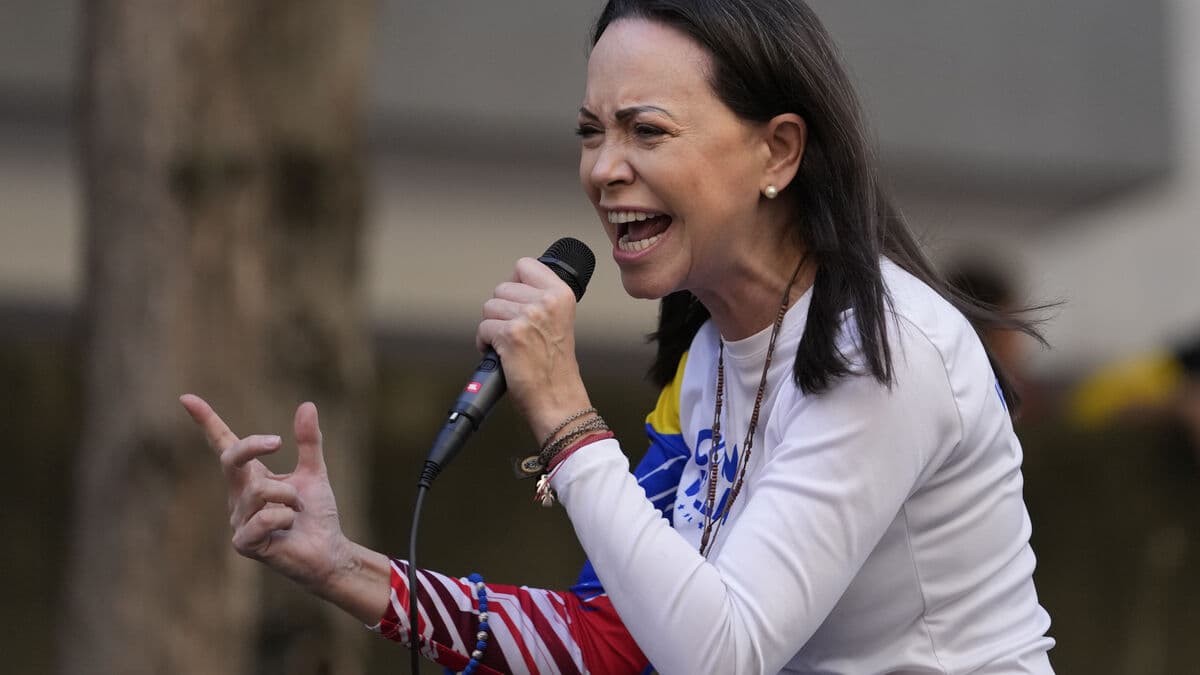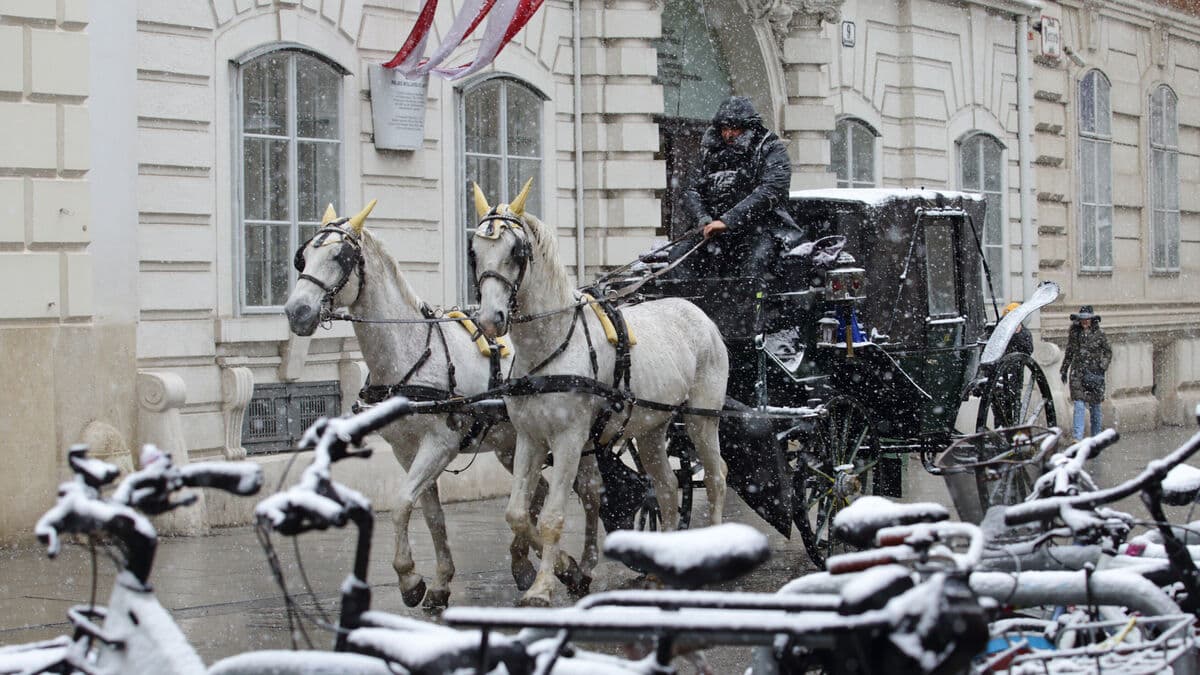Machado receives the award for her "tireless work in promoting democratic rights for the Venezuelan people and for her struggle to achieve a fair and peaceful transition from dictatorship to democracy", states the motivation from the Norwegian Nobel Committee.
I am in shock, she says in a video that the news agency AFP has taken part of.
Chairman Jørgen Watne Frydnes calls Machado "one of the most extraordinary examples of civil courage in Latin America in recent years". Committee Secretary Kristian Berg Harpviken has spoken briefly with her.
She was initially speechless, but said it was overwhelming and that it is a prize to a whole movement. The movement in Venezuela that has fought for democracy, he tells NRK.
Advertisement
"Incredibly essential"
58-year-old María Corina Machado has for over ten years been a leading figure in the opposition to Venezuela's authoritarian president Nicolás Maduro. She has herself been blocked from running in elections and has at times been forced to go underground, but despite serious threats to her life, she has chosen to stay in the country.
The award will be significant for Venezuela's opposition, believes Peter Wallensteen, professor emeritus of peace and conflict research at Uppsala University.
I believe that everyone who sees the connection between peace and democracy understands that what Machado is doing is incredibly essential to achieving a peaceful change in an authoritarian regime.
The situation in Venezuela receives too little attention, he believes. Under Maduro's dictatorship, the country is plagued by poverty and great social contradictions, despite its large oil wealth.
Here is a woman who is really known for fighting against this with peaceful means, says Wallensteen.
Nominated by Rubio
He also notes that Machado was nominated by, among others, the current US Secretary of State Marco Rubio.
It's a bit interesting.
As recently as January, Machado was arrested and later released in connection with a protest against Maduro being sworn in again as Venezuela's president. It was then her first public appearance in several months.
They wanted us to fight each other, but Venezuela stands united! she shouted from a truck in the capital Caracas.
Mia Holmberg Karlsson/TT
Cecilia Klintö/TT
Fact: María Corina Machado
TT
Born: October 7, 1967 in Venezuela's capital Caracas.
Started her career as an activist and leader of the Fundación Atenea foundation.
In 2002, she created the volunteer organization Súmate, which, among other things, monitors elections, together with Alejandro Plaz.
Machado has long been a vocal critic of former President Hugo Chávez and his successor Nicolás Maduro. In 2010, she became more actively involved in politics as a member of the national assembly for the opposition party Mesa de la Unidad Democrática (MUD).
In 2014, she led extensive demonstrations against the increasingly authoritarian Maduro. Since then, she has been a central leader of the Venezuelan opposition.
María Corina Machado was already awarded in Europe last year, when she received the EU Parliament's Sakharov Prize for human rights. She has also been awarded the Council of Europe's human rights prize, the Vaclav Havel Prize, for her struggle for democracy under Maduro's rule.
In democracy measurements, Venezuela ends up among "rogue states" - the country is classified among the most authoritarian and non-free states in the world. Democratic freedoms and rights have been eroded over two decades, but the decline has been particularly large in recent years.
During the "Bolivarian revolution", which began when Hugo Chávez came to power in 1999, restrictions have been introduced step by step regarding political rights and democratic functions.
Elections were largely free and the results correct until and including 2015, although the conditions were not fair.
When the opposition won an election at the national level in 2015, the regime set up another assembly in place of the newly elected parliament. Before the parliament could take office, new judges were appointed under coup-like forms. The Supreme Court has since been distinctly regime-loyal.
Elections held since then have lacked democratic anchorage. In January 2025, authoritarian Nicolás Maduro was sworn in for a third six-year term as president.
Source: Landguiden/UI






